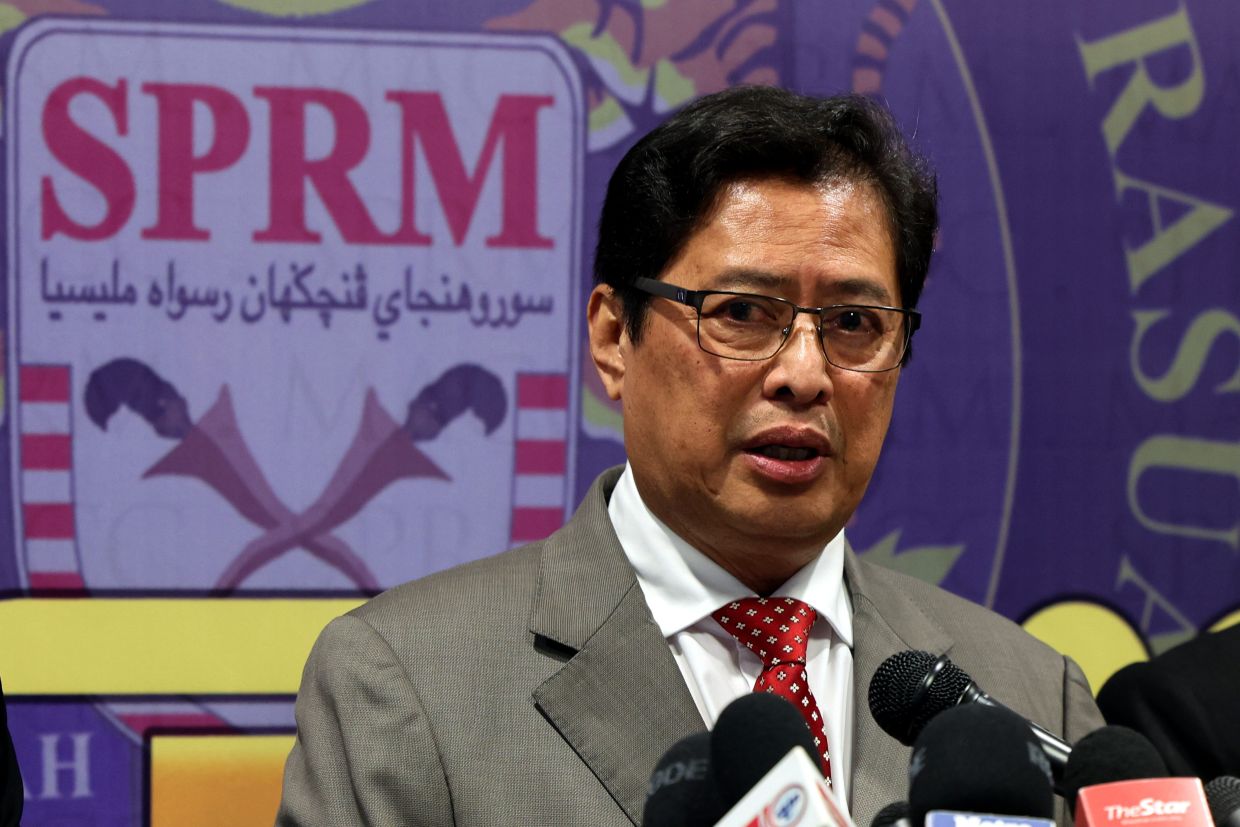PUTRAJAYA: Sixteen sub-strategies under the National Anti-Corruption Strategy (NACS) 2024-2028 have been successfully implemented by 11 ministries and agencies, including the Malaysian Anti-Corruption Commission (MACC), as of August, says MACC chief commissioner Tan Sri Azam Baki (pic).
Of these, five were completed last year, while 11 were achieved this year.
Azam said the measures include the introduction of the Border Control and Protection Agency Act 2024, the development of integrity and anti-corruption ambassador kits for schools, additional financial incentives for the production of specialised creative film content and a mandatory declaration of beneficial ownership for companies participating in public procurement.
“Other initiatives completed include the mandatory rollout of the Governance, Integrity and Anti-Corruption module across the civil service, job rotation exercises, guidelines for engagement sessions in Parliament and state assemblies.
“Improvements were also made to the E-Vetting 3.0 system to strengthen screening of civil service recruits,” he said during a recent media briefing.
Azam said the sub-strategies carried out have also delivered tangible benefits to the public.
“The Act also combats smuggling and illicit economic activities, including the illegal trade of cigarettes, diesel and other black-market goods,” he said.
Commenting on the Corruption Perceptions Index (CPI), Azam said the CPI Special Task Force, led by Chief Secretary to the Government Tan Sri Shamsul Azri Abu Bakar, was taking a targeted approach and had established six focus groups, covering enforcement, public fund management, business competitiveness, investment risk, legislation and strategic communications.
“These focus groups, which were formed last October, are driving improvements within their respective areas,” he said.
Azam added that the MACC was also adopting digitalisation and artificial intelligence (AI).
“The use of big data analytics and AI serves as an early detection tool to identify unusual spending patterns or suspicious project approvals,” he said.
Azam said AI is not immune to misuse. As a result, the government would introduce legal frameworks and guidelines to ensure the responsible use of the technology.
“This framework outlines principles such as algorithmic fairness, transparency, the right to explanation and protection against digital discrimination,” he said.
Regarding NACS, Azam stated that one of its objectives was to enhance public confidence in the transparency and integrity of national institutions.
“The outlined approach is about combating corruption and building a system of governance that earns public trust through open monitoring, community engagement and consistent enforcement.
“The more the public understands what we are doing, the greater their confidence will be,” he said. – Bernama






